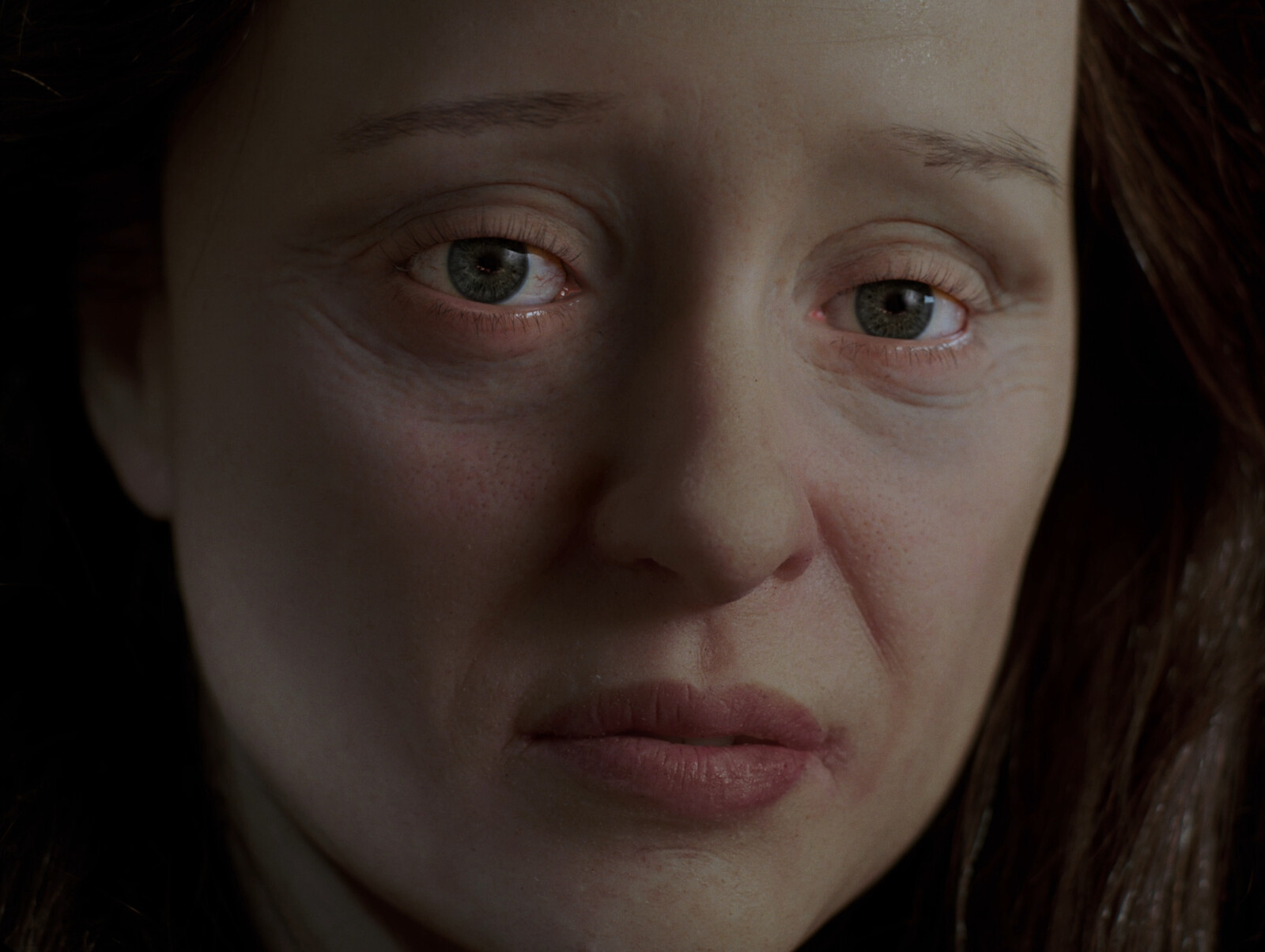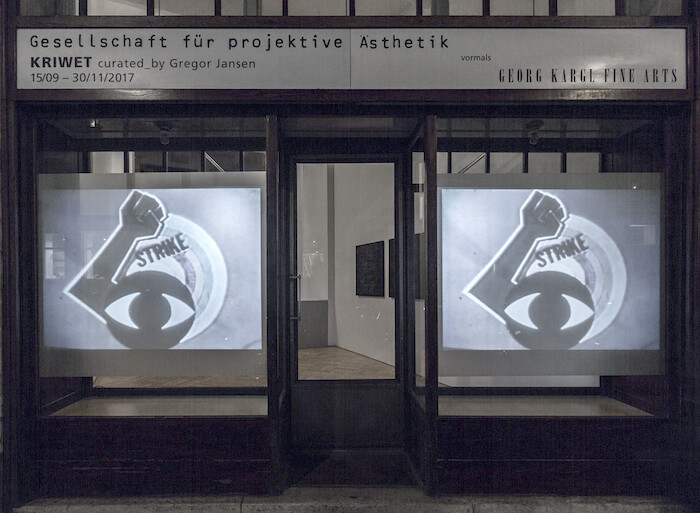Categories
Subjects
Authors
Artists
Venues
Locations
Calendar
Filter
Done
October 28, 2024 – Review
Diego Marcon’s “La Gola”
Michael Kurtz

Diego Marcon’s short films pair idiosyncratic approaches to animation with painful and provocative subject matter. In Monelle (2017) sleeping girls are tormented by ghoulish CGI figures amid the darkness of the old Fascist headquarters in Como. In The Parents’ Room (2021), a father, played by an actor wearing an emotionless mask, performs an opera about how he murdered his family. And in Fritz (2024) a computer-animated boy hangs from a noose, half-dead but still yodelling.
His new film, La Gola (2024), dramatizes an epistolary exchange between Gianni and Rossana, who are represented by hyper-realistic mannequins. The two characters appear in a series of close-ups, every time in a new outfit and location, as their letters are read in a voiceover backed by organ music. Gianni recounts the details of a recent feast, from a medieval soup served in an eggshell to Torta Fedora, a Sicilian cake covered in “mischievous ruffles” of “whipped ricotta,” which he calls “the bakeable Baroque!” Meanwhile, Rossana sends updates on her mother’s declining health, reporting an assortment of gruesome ailments including “flaccid little blisters” that ooze “syrupy fluid” and “diarrhoea accompanied by mucus.”
In this caricature of traditional gender dynamics, he indulges in unchecked consumption while …
June 4, 2019 – Review
Peter Friedl’s “Teatro”
Raimar Stange

Puppet theater is something you don’t see often in an art exhibition, and here the characters are four historical figures who were important in times of transition in diverse ways: John Chavafambria, known as the “Black Hamlet” of psychoanalysis; Henry Ford, founder of Ford Motor Company; violinist Julia Schucht, the wife of Antonio Gramsci; and Toussaint Louverture, leader of the Haitian revolution of 1791–1804. Rooted in disparate places and times, the protagonists of Peter Friedl’s puppet show The Dramatist (Black Hamlet, Crazy Henry, Giulia, Toussaint) (2013) enact potential performances of counterfactual historical narratives. These productions do not follow such conventions as the description of a linear sequence of events, accepted historical research or its usual forms of representation—they remain in the realm of the possible. Concurrently denied, the puppets hanging there lifelessly await their use even though their strings are hung so high that playing them would be impossible.
Change of scene: the video installation Report (2016) stands at the center of “Teatro,” this remarkable, critical exhibition which dissects hegemonic forms of thought. The work, previously shown at Documenta 14 (2017), initially shows the stage of the National Theatre of Greece in Athens, empty, with no stage design and hardly any …
November 28, 2017 – Feature
Vienna Roundup
Orit Gat

Walking home at night, I pass by Campaign (1972), a two-channel video installation by Ferdinand Kriwet projected onto the storefront windows of Georg Kargl Fine Arts. In the dark street, the images of television footage from the 1972 US presidential campaign fronting Richard Nixon and George McGovern are silent; at the gallery during the day, they almost disappear against the light, but the field recordings, collected by the artist on a trip to the US to witness the primaries, are audible.
The sound of talking heads and debates shapes the experience of the exhibition, a last remnant still on view from curated by_Vienna, a festival inviting international curators to organize fall exhibitions in the city’s galleries. The theme of this year’s iteration was language in contemporary art, and curator Gregor Jansen honed in on the 75-year-old German artist’s longstanding interest in media and focus on text and dissemination. These are crucial issues in our divided societies, in which it is inconceivable that any candidate could win a landslide like Nixon’s (who won 62 per cent of the vote, taking every state except Massachusetts and Washington DC). Jansen did not need to spell out a connection to contemporary politics: speech and its …